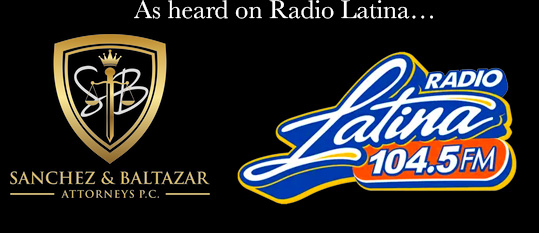DUI Attorney San Diego, CA
If you find yourself facing a DUI charge in San Diego, it is crucial to enlist the help of a skilled defense lawyer for drunk driving to navigate the legal complexities and defend your interests. Taking immediate action after being charged is essential to safeguarding your rights and avoiding a DUI conviction. Choosing a knowledgeable, experienced DUI attorney in San Diego, CA is paramount.
In the aftermath of a charge, DUI consequences extend beyond legal penalties; they can impact your personal and professional life. Employment opportunities, relationships, and your overall well-being may be affected. An adept DUI defense attorney in San Diego not only defends you in the courtroom but also serves as an advocate for your future. They work tirelessly to explore every avenue for building a robust defense tailored to your unique circumstances. By leveraging their expertise, you not only enhance your chances of achieving a favorable legal outcome but also gain an ally dedicated to minimizing the broader repercussions of a DUI incident on your life. Remember, time is of the essence, so act swiftly to secure the guidance and support needed to navigate through this challenging period.

Are DUIs Common in San Diego?
In San Diego, a DUI is the most prevalent criminal offense. In 2021, local prosecutors and law enforcement authorities reported that the number of fatalities in DUI crashes had reached 35, surpassing the total from the previous year. Unfortunately, DUI offenses are common in this county.
But what happens if you have been arrested for a DUI? If this is your case, you have only ten days to schedule a hearing with the Department of Motor Vehicles (DMV). Failure to do so within the stipulated timeframe results in a license suspension for 30 days. However, swiftly contacting a DUI lawyer is imperative to prevent such a suspension.
Beyond the immediate legal implications, a DUI arrest triggers a series of time-sensitive events that can significantly impact your ability to drive and defend your case. The ten-day window to schedule a hearing with the DMV is a critical opportunity to contest the impending license suspension. This administrative process is separate from the criminal proceedings and demands a proactive approach.
A seasoned DUI lawyer in San Diego will not only understand the intricacies of this timeline, but can also guide you through the necessary steps to safeguard your driving privileges. Their expertise becomes invaluable in navigating both the legal complexities and administrative requirements, ensuring that no opportunity for a robust defense is overlooked. Act swiftly to engage legal counsel, as this time-sensitive aspect can significantly influence the trajectory of your DUI case.
If you are facing a DUI charge, finding the right legal representation is crucial. Search for ”best DUI lawyer in San Diego” to ensure you have the best possible defense. The consequences of a DUI, especially for a second offense, can be severe, and understanding DUI consequences is essential. Seek the assistance of an experienced DUI lawyer who can provide the necessary legal help for your case.
First-Time DUI Offense: What to Expect

If it’s your first DUI offense in California, penalties can include up to six months in jail, a fine of up to $1,000, and a license suspension of up to six months. Subsequent offenses carry even more severe consequences, with a second DUI offense potentially leading to one year in jail, a $1,000 fine, and a license suspension of up to two years. As you can see, the impact of a DUI conviction is substantial, underscoring the importance of a robust defense.
Moreover, the repercussions of a DUI conviction extend beyond the immediate legal penalties. A tarnished criminal record can impede your ability to secure employment, affect your personal relationships, and lead to increased insurance premiums. Adding to this, the financial strain of fines, potential restitution, and legal fees adds to the overall burden. This is why recognizing the enduring impact of a DUI conviction underscores the critical need for a strong defense strategy, and a seasoned San Diego DUI attorney possesses the expertise to navigate the complexities of the legal system, seeking to mitigate the immediate and long-term consequences.
By crafting a personalized defense tailored to the specific details of your case, an experienced attorney becomes a crucial ally in minimizing the far-reaching effects of a DUI charge on your life. When facing legal challenges related to DUI, finding the best DUI attorney in San Diego is paramount. Conducting a search for “best DUI lawyer near me” or “drunk driving attorneys near me” can help you locate experienced professionals who regularly handle DUI cases, understand the nuances of local laws, and can provide effective legal representation. In San Diego, for instance, a reputable DUI lawyer can make a significant difference in navigating the legal complexities and safeguarding your rights. Don’t hesitate to seek legal help for DUI matters, as the right attorney can be instrumental in achieving the best possible outcome for your case.
Different Types of DUI Offenses
While all DUI charges involve driving under the influence of alcohol or drugs, there are several distinct types of DUI offenses beyond the simple crime of driving under the influence.
Commercial DUI Offense
When a driver of a commercial vehicle (usually a driver with a Class C license) is charged with driving under the influence, increased penalties apply. For a first-time conviction, the driver’s commercial driving privileges are automatically suspended for one year. For a second or subsequent offense, the driver will be barred for life from obtaining or maintaining a commercial driver’s license.
Probation Violation
In many cases, persons convicted of crimes in California must serve probation as part of their sentencing. Being charged with a DUI while actively on probation is a violation of the terms of probation, regardless of whether the probation was related to a previous DUI conviction or another type of crime. Californians who violate probation by driving under the influence can expect harsher sentencing by the court, if convicted of the DUI charges.
DUI Causing Injuries
When a DUI offense results in someone else becoming injured, a driver who was under the influence of alcohol or drugs can be charged with DUI Causing Injury. If convicted of this crime, the offender will face mandatory jail time and suspension of driving privileges for at least one year. In cases involving significant injuries, a convicted driver could spend up to seven years in prison. When a victim is killed in a DUI offense, the driver could be charged with vehicular manslaughter or second-degree murder. A DUI with injuries is a violation of Vehicle Code Section 23153(a).
DUI With Child Passengers
Driving under the influence with a child in the car can result in separate child endangerment charges, which can be misdemeanor or felony charges, in addition to the DUI charges. Alternatively, a DUI charge could include a sentencing enhancement and mandatory jail time for a convicted offender.
Felony or Aggravated DUI
While a typical DUI charge is a misdemeanor, driving while under the influence of drugs or alcohol while committing a separate crime is considered an “aggravated” DUI and is charged as a felony. When aggravating circumstances increase the severity of the crime, they also tend to lead to harsher penalties. In addition to the other types of scenarios outlined in this section, your DUI charges may be aggravated if you had prior DUI convictions in a short period; were involved in a hit-and-run accident while driving under the influence; were driving recklessly or speeding; or you refused to take a breathalyzer or blood test.
Underage DUI
California has a zero-tolerance law (Blood Alcohol Content of 0.01%) and a separate underage DUI law (Blood Alcohol Content of 0.05%) that impose harsh penalties on drivers under age 21, even if the driver is not impaired by alcohol. Underage drivers convicted of underage DUI charges can find their driving privileges suspended for one year.
The Significance of Hiring an Experienced DUI Attorney
When it comes to facing a DUI charge, it is crucial to have experienced San Diego, California DUI lawyers by your side. When searching for “good DUI lawyers near me” or “drunk driving lawyer near me,” you can be assured of getting the necessary guidance and support throughout the legal process. They possess the knowledge and expertise to create a defense strategy tailored to your specific circumstances, which can maximize your chances of avoiding a conviction. Moreover, they can help you mitigate the serious consequences associated with a DUI conviction.
In terms of cost, the fee for a first offense DUI lawyer may vary depending on the lawyer’s experience and the case’s complexity. While it may be tempting to look for a cheap DUI attorney, selecting one with experience and a commitment to prioritizing your best interests should be the first consideration. The cost of hiring a skilled DUI attorney is a worthy investment as they can help you avoid significant penalties, such as losing your license, paying heavy fines, and even imprisonment.
If you are facing 2nd DUI consequences, it becomes even more critical to hire a skilled DUI attorney. The penalties for a second DUI conviction are usually more severe than those for a first offense. In such cases, an experienced San Diego drunk driving lawyer can help you navigate the legal proceedings and protect your rights.
In addition to formulating a robust defense strategy, an experienced DUI lawyer plays a pivotal role in navigating the emotional and logistical challenges that accompany a DUI charge. Beyond the courtroom, they act as a trusted advocate, ensuring you fully comprehend the legal proceedings and potential outcomes. The stress and uncertainty of a DUI case can be overwhelming, and a skilled attorney provides not only legal expertise but also emotional support.
At S&B Legal, our team of experienced attorneys can provide you with the legal help you need to mitigate the consequences of a DUI conviction. We prioritize clear communication and transparency to empower our clients to make informed decisions. Rest assured that with Joanne P. Sanchez and Lisbette J. Baltazar, each boasting over 13 years of legal experience, you have dedicated allies focused on your best interests throughout every step of the legal journey.
Consequences of a DUI Charge
A DUI attorney in San Diego, CA can play a crucial role in securing a favorable outcome for your DUI case. With the potential consequences of a DUI conviction, including three to five years of informal probation for a first-time offense, it is essential to have a skilled DUI lawyer on your side. In the case of repeat offenses, penalties escalate, potentially leading to jail time and a two-year license suspension.
In addition to the formal penalties imposed by the legal system, a DUI conviction can disrupt your daily life and impose restrictions on your freedom. Repeated offenses may escalate these challenges, potentially leading to jail time and a two-year license suspension. It is crucial to understand the severity and complexity of the consequences of a DUI charge and engage a drunk driving lawyer near you to mitigate them.
Contacting a San Diego DUI Defense Lawyer
At S&B Legal, we have been successful in defending many clients against DUI and other criminal charges in California. For highly experienced DUI lawyers, reach out to our firm today. With Joanne P. Sanchez and Lisbette J. Baltazar, each boasting over 13 years of legal experience, you can trust our expertise to guide you through your case. Get in touch with us online, or call us at (760) 302-4652 today to schedule a free DUI case evaluation.


